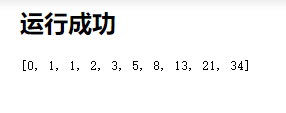1、前言
正常情况下,当我们定义了一个class,创建了一个class的实例后,我们可以给该实例绑定任何属性和方法,这就是动态语言的灵活性。
先定义class:
class Student(object):
pass
然后,尝试给实例绑定一个属性:
>>> s = Student()
>>> s.name = 'Michael' # 动态给实例绑定一个属性
>>> print(s.name)
Michael
还可以尝试给实例绑定一个方法:
>>> def set_age(self, age): # 定义一个函数作为实例方法
... self.age = age
...
>>> from types import MethodType
>>> s.set_age = MethodType(set_age, s) # 给实例绑定一个方法
>>> s.set_age(25) # 调用实例方法
>>> s.age # 测试结果
25
但是,给一个实例绑定的方法,对另一个实例是不起作用的:
>>> s2 = Student() # 创建新的实例
>>> s2.set_age(25) # 尝试调用方法
Traceback (most recent call last):
File "<stdin>", line 1, in <module>
AttributeError: 'Student' object has no attribute 'set_age'
为了给所有实例都绑定方法,可以给class绑定方法:
>>> def set_score(self, score):
... self.score = score
...
>>> Student.set_score = set_score
给class绑定方法后,所有实例均可调用:
>>> s.set_score(100)
>>> s.score
100
>>> s2.set_score(99)
>>> s2.score
99
通常情况下,上面的set_score方法可以直接定义在class中,但动态绑定允许我们在程序运行的过程中动态给class加上功能,这在静态语言中很难实现。
2、使用__slots__
但是,如果我们想要限制实例的属性怎么办?
比如,只允许对Student实例添加name和age属性。
为了达到限制的目的,Python允许在定义class的时候,定义一个特殊的__slots__变量,来限制该class实例能添加的属性:

class Student(object):
__slots__ = ('name', 'age') # 用tuple定义允许绑定的属性名称
然后,我们试试:
>>> s = Student() # 创建新的实例
>>> s.name = 'Michael' # 绑定属性'name'
>>> s.age = 25 # 绑定属性'age'
>>> s.score = 99 # 绑定属性'score'
Traceback (most recent call last):
File "<stdin>", line 1, in <module>
AttributeError: 'Student' object has no attribute 'score'
由于’score’没有被放到__slots__中,所以不能绑定score属性,试图绑定score将得到AttributeError的错误。
使用__slots__要注意,__slots__定义的属性仅对当前类实例起作用,对继承的子类是不起作用的:
>>> class GraduateStudent(Student):
... pass
...
>>> g = GraduateStudent()
>>> g.score = 9999
除非在子类中也定义__slots__,这样,子类实例允许定义的属性就是自身的__slots__加上父类的__slots__。
__slots__的目的是限制当前类所能拥有的属性,如果不需要添加任意动态的属性,使用__slots__也能节省内存。
任务
假设Person类通过__slots__定义了name和gender,请在派生类Student中通过__slots__继续添加score的定义,使Student类可以实现name、gender和score 3个属性。
CODE
Student类的__slots__只需要包含Person类不包含的score属性即可。
class Person(object):
__slots__ = ('name', 'gender')
def __init__(self, name, gender):
self.name = name
self.gender = gender
class Student(Person):
__slots__ = ('score',)
def __init__(self, name, gender, score):
super(Student, self).__init__(name, gender)
self.score = score
s = Student('Bob', 'male', 59)
s.name = 'Tim'
s.score = 99
print s.score

3、使用__call__
在Python中,函数其实是一个对象:
>>> f = abs
>>> f.__name__
'abs'
>>> f(-123)
123
由于 f 可以被调用,所以,f 被称为可调用对象。
所有的函数都是可调用对象。
一个类实例也可以变成一个可调用对象,只需要实现一个特殊方法__call__()。
我们把 Person 类变成一个可调用对象:
class Person(object):
def __init__(self, name, gender):
self.name = name
self.gender = gender
def __call__(self, friend):
print 'My name is %s...' % self.name
print 'My friend is %s...' % friend
现在可以对 Person 实例直接调用:
>>> p = Person('Bob', 'male')
>>> p('Tim')
My name is Bob...
My friend is Tim...
单看 p(‘Tim’) 你无法确定 p 是一个函数还是一个类实例,所以,在Python中,函数也是对象,对象和函数的区别并不显著。
任务
改进一下前面定义的斐波那契数列:
class Fib(object):
???
请加一个__call__方法,让调用更简单:
>>> f = Fib()
>>> print f(10)
[0, 1, 1, 2, 3, 5, 8, 13, 21, 34]
CODE
class Fib(object):
def __call__(self, num):
a, b, L = 0, 1, []
for n in range(num):
L.append(a)
a, b = b, a + b
return L
f = Fib()
print f(10)

